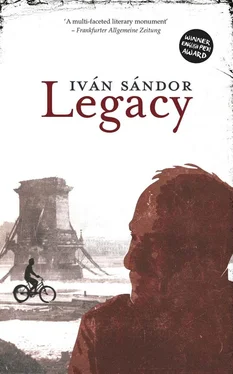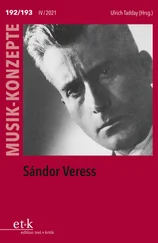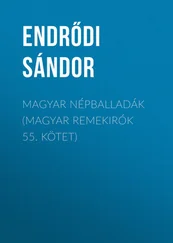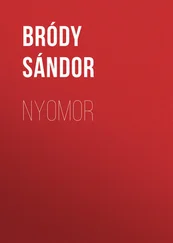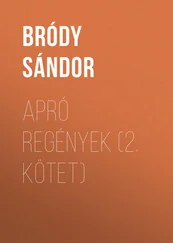We cannot stay long here either, I say to Vera in my dream.
It is still dark when I put my clothes on. I stow the blankets back behind the bales of paper. I don’t know whether or not the women will come into work in the morning; I don’t know if anyone has spare keys, but if they do come at least they will not find us undressed. Vera is shivering in the cold. I ask her at least to wash her face, there’s a tap at the back. There is no toilet; there is one next to the caretaker’s flat, but we can’t cross the yard at this time of day. I tell Vera that next to the tap there is a drain — she can use that if she wants to pee.

Maybe it was here, at the windows of the Astoria coffee room overlooking Magyar Street, that Lutz and Feine drank their coffee. I order a cappuccino. The waitress, who must be about twenty-five years old, has a slim waist that does not fit her otherwise ample looks, nor do the marked features and jutting chin fit her rounded face. Rather, it looks as if she had been moulded from discordant components.
Would it help me, I wonder, if I knew what the layout had been like sixty years ago? Perhaps there are photographs from that time. Who should I ask?
I could have spoken to the manager or enquired at the reception desk, but more important than any plan of how it looked at the time is the look on a young woman’s face when I pose that question.
She is eager, just as if I had given a further order: I cannot think of a blue to which I could compare the blueness of her eyes. There probably is one, if nowhere else than one mixed on an artist’s palette from a great range of blues, maybe with a dash of yellow, or maybe black, or both. Perhaps both, as her look grows both darker and lighter.
I ask her, Tell me, all I have heard is hearsay, but it is said that in ’44 the Gestapo had a set-up in the cellars. Had you heard that? She’s not rightly sure … it rings a bell …
Five minutes later she brings a glossy brochure, published not long ago to mark the ninetieth anniversary of the hotel. I ask her again how she came to know about the Gestapo. Instead of an answer she says that’s where Katalin Karády and the actor Pál Jávor were brought; she’d heard that from her father. Her father must have been a little boy when the war was on, perhaps he was not yet born, I say. Her father had heard that from his father, she says, because he used to work here. There is pride in her eyes, confusion as well, as if her smile, too, were coaxed from disparate sentiments. It’s a family occupation. Her father started here and is now head waiter at the Palace Hotel on Rákóczi Avenue.
Katalin Karády and Pál Jávor were not brought here but to the Gestapo’s HQ on Swabian Hill, I say. The smile vanishes, but she is still disposed to chat: then her dad had got it wrong, although perhaps it was her grandfather who had misremembered it.
You should ask him.
That is a mean thing to say. I daren’t look her in the eyes.
I didn’t know him; I think he was already dead when I was born. The regulation smile afresh. I am familiar with a great variety of such smiles, but this one I had not come across before. I see a mask for infinite boredom.
Twice a week I drink coffee at the same table; I don’t ask the waitress any questions. Sometimes I also have a Cabinet brandy. I want her to get used to me. On one occasion I mention that Mother’s aunt was among those brought to the cellar here in 1944. After a while I get to learn that her father was born in 1951. I write up notes at home. Her father began working in the profession as a boy; her grandfather also started working in the Astoria. He was also there during the Second World War, but she doesn’t know what post he held — it could have been as a porter or a waiter; it might even have been as a head waiter. Her father says it’s all so shrouded in obscurity that he might even have carried a weapon. He was gaoled in 1945 and was given five years, although for what is ‘a total mystery’. In 1956 he defected, and they never heard from him again. It’s of no interest, she says.
I note down that when she speaks about this the black is more intense in her eyes than the yellow. I note down that I don’t believe what she tells me — neither what she says about her father and grandfather nor that she really thinks it’s of no interest. But I note down that, nevertheless, that may be how she feels. I note also that by the time we are talking like old acquaintances she replies in answer to a question that she does not know if her father said nothing more about her grandfather because he, possibly, knew that what he happened to know needed to be kept secret — or maybe he just did not understand what she was questioning him about. I note down that, none the less, she had asked. Yes, she says, I think he genuinely did not understand, so there was nothing to talk about.
When she says that she is standing by as if she had had just realized something and felt obliged to ponder on that.
Maybe she was imagining her father’s glazed look of indifference. She shrugs her shoulders, perhaps in the same way her father did when she questioned him.
As I see it, she would be glad if I do not trouble her with further questions.
For the first time since I have been following the trail of my old footsteps I feel that anything that sinks into oblivion when it happens is lost for good.
She looks back from another table; she can see that I am getting down to work.
There was a time when I used to work in the Astoria, so why not now …?
By the time I reach the end of the paragraph, I write, I shall have to confront something for which so far I have lacked the nerve: I have reached a detour. But I have not yet reached the end of the paragraph. How might I get further on in a story about which even someone to whom it happened knows nothing? That woman was going nowhere, the same as her father; even her grandfather may have sleepwalked into his own fate without having any idea of where he was going. Am I supposed to know something about which they themselves knew nothing? I am caught in a trap, I write. I could only extricate myself if I were able to understand what gives birth to what I have called indifference by descending into that nocturnal world through which I wandered, yet the price would be that I have to see myself through their eyes. It’s just that I cannot get to the bottom of their stories in their place. All the same I would like to, I write. I dread contradictions like this. I need to consider that perhaps it was the waitress’s grandfather who took the coffee to the German major who had interrogated Gizi, and I should see him as the head waiter who keeps under observation the meeting between Carl Lutz and Gerhart Feine before Carl Lutz’s telephone had rung a second time on a later night.

The first telephone call, coming at nine o’clock, is about how up around St István Park, on the Pest bank of the Danube opposite Margit Island, the occupants of one of the houses under Swiss protection are being lined up by Arrow Crossers. Lutz and his wife get into a car. When they draw up before the building the Arrow Crossers level weapons at them. At the Hungarian Ministry of Foreign Affairs Lutz delivers a verbal memorandum to Baron Gábor Kemény. The Foreign Minister instructs the district commander of the Arrow Crossers that his men must withdraw from a house which is under diplomatic protection. The commander in turn proceeds to the site and authorizes that the action be continued. Lutz arrives back at St István Park with the minister’s chef de cabinet. The Arrow Cross commander and the chef de cabinet draw guns on one another; Gertrud takes a picture. The chef de cabinet pays no attention to the weapon being levelled at him and has the people who have been lined up led back into the house.
Читать дальше
